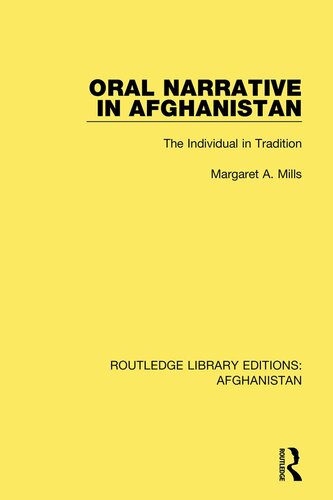Product desciption
Oral Narrative In Afghanistan The Individual In Tradition 2nd Edition Margaret A Mills by Margaret A. Mills 9780367265137, 0367265133 instant download after payment.
Since the turn of the century, folklorists’ work on oral prose narrative
has proceeded along two major lines, deriving respectively from historical
philology and structural linguistics. The European scene was dominated,
for the first half of the century, by the historical-geographical or Finnish
school, which studied folktale texts as chains of detachable and to some
extent interchangeable parts, designated ‘motifs’.1 The second line of
inquiry, growing out of structural linguistics, attracted the interest of a
variety of anthropologists and linguists. Structuralism is perhaps a
misnomer for some of the branches which this line of inquiry has yielded,2
but all the structuralist and formalist theories have in common their
treatment of narrative texts as wholes, and their search for meanings in
the interrelationships of elements within a text.3
Each of these analytic approaches, in its way, confronts the
phenomenon of variants (story texts which are similar and whose
geographical provenance suggests an historical relationship). The
historical-geographical school has traditionally been concerned with
mapping differences in a cycle of tales (e.g. the ‘tale of the lost husband,’
of which Text G, discussed below, is a variant), often with an eye to
postulating an historical/geographical origin point for a given story, on
the basis of the fact that differences between variants tend to be greater as
time, distance and linguistic and cultural barriers intervene between them.
Differences are generally mapped in terms of details of content,
particularly in the choice of motifs (e.g. the tasks set for the hero(ine),
which can range from the retrieval of various objects to the answering of
certain questions, etc.), or, as in the Cinderella tale cycle, whether the
main character is a male, a female, or twins, and whether the magical
helper is a cow or other animal, or an anthropomorphic supernatural, etc.


